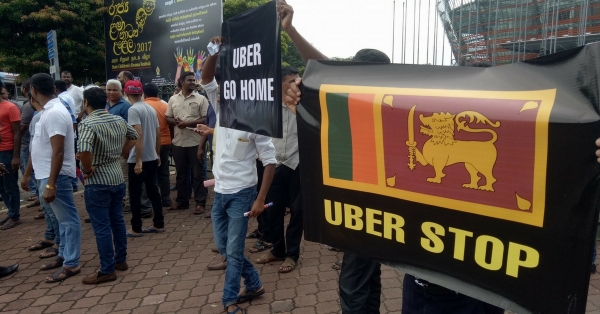Sri Lanka’s taxi-hailing services came under spotlight this week when an article in the Sunday Times highlighted a problem that had not been seen before. While users are clamouring for Uber to take responsibility for their drivers’ actions, they are not aware that they themselves may have legally waived the right to do so.
What it boils down to is that these taxi-hailing companies are not really cab services in the real world. They are just an app on a mobile device and the user when downloading it, unwittingly agrees to their terms like they would in the case of any other mobile app. What makes it worse as pointed out by Sunday Times, journalist Tharushi Weerasinghe in her article ‘Lack of Accountability Rams into Lanka’s taxi-hailing app culture’ is that Uber user terms are not even subject to the laws of Sri Lanka but to the laws of the Netherlands.
The article comes in the wake of a spate of attacks reported on social media of violent assaults made on passengers by some Uber drivers. The terms of this hailing company indicate that they are not a transportation carrier. What this means for the user is that they need to read the terms they agree to when they download a hailing app. If they do they will see that they have agreed to indemnify the app company from any responsibility for the passenger for anything that may happen to them in a taxi hailed using their app. For example, Uber says they only act as the intermediary between the passenger and the transportation provider, and it is up to the transportation provider to provide transportation services, which may be requested through their app.
This means Uber washes its hands completely of any responsibility. As the Sunday Times reporter says “the liability waiver is intended to protect the companies but has given the drivers of certain apps a dangerous level of impunity.” She goes on to say that while local service providers also do slip up, the existence of a face to the name helps to have some degree of accountability. PickMe and Yogo are quoted in the article as saying that they have systems in place to hold their drivers accountable.










